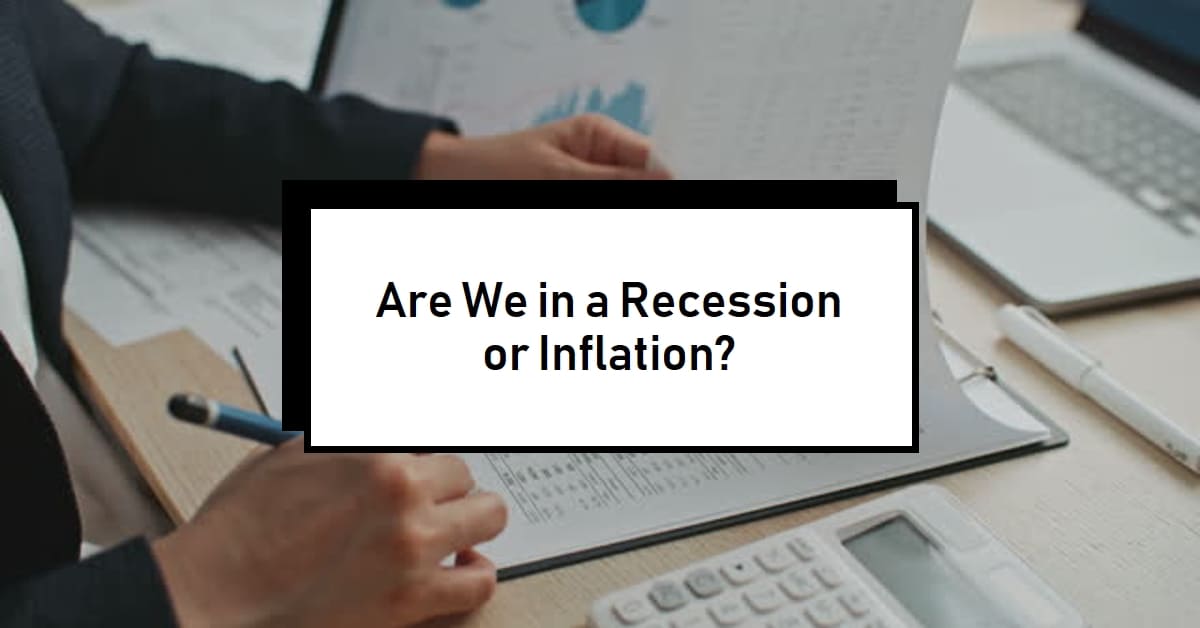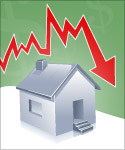This is a question that many people are asking as we enter a new year with uncertainty and volatility in the global economy. The answer is not straightforward, as different indicators and forecasts suggest different scenarios. In this blog post, we will look at some of the factors that could influence the US economy in 2024, and what they mean for consumers, businesses, and investors.
Understanding Recession and Inflation
First, let's define what recession and inflation are. A recession is a period of declining economic activity, usually measured by two consecutive quarters of negative growth in gross domestic product (GDP). Inflation is a sustained increase in the general level of prices of goods and services, which reduces the purchasing power of money.
Both recession and inflation have negative impacts on the economy and society, but they also have different causes and effects. A recession can be triggered by various factors, such as a financial crisis, a trade war, a natural disaster, or a pandemic. A recession can lead to lower incomes, higher unemployment, reduced consumer spending, lower business investment, and lower tax revenues. A recession can also create deflationary pressures, which means that prices fall as demand decreases.
Inflation can be caused by various factors, such as an expansionary monetary policy, a fiscal stimulus, a supply shock, or an increase in aggregate demand. Inflation can lead to higher costs of living, lower real wages, reduced savings, higher interest rates, and lower profits. Inflation can also create expectations of further price increases, which can fuel more inflation.
The Outlook for the US Economy in 2024
So, what is the outlook for the US economy in 2024? According to the latest Chief Economists Outlook by the World Economic Forum, opinion is split on whether the global economy will weaken or strengthen in the coming year. Some economists expect a slowdown in growth due to the fading effects of fiscal stimulus, the tightening of monetary policy, the persistence of supply chain disruptions, and the emergence of new variants of COVID-19. Others expect a rebound in growth due to the improvement in vaccination rates, the easing of inflation pressures, the recovery of consumer confidence, and the resilience of innovation.
The US economy is expected to follow a similar pattern as the global economy, with some nuances. According to Forbes Advisor, the Federal Reserve has done an excellent job bringing down inflation in 2023 while avoiding a US economic recession. Investors now anticipate that the Federal Open Market Committee (FOMC) will pivot from rate hikes to rate cuts by mid-2024. However, Fed officials have repeatedly cautioned that the FOMC's battle with inflation still has a long way to go. If the Fed pivots to rate cuts too soon, inflation could easily rebound in 2024.
Even if the Fed can navigate a soft landing for the economy in 2024, economists still expect inflation to remain above the Fed's long-term 2% inflation target. The personal consumption expenditures (PCE) price index, a popular measure of inflation, was up 3.0% year-over-year in November 2023. The consumer price index (CPI), another closely watched US inflation gauge, was up 3.1% year-over-year in November 2023. Certain segments of the economy are responding extremely well to higher interest rates, but others could prove to be problematic and pose a challenge for the Fed in 2024.
For example, housing inflation remained stubborn in November 2023, up 6.5% from a year ago and 0.4% from October. Inventory shortages have propped up housing prices in 2023 despite the average interest rate on a 30-year fixed mortgage peaking at a 23-year high of over 8% in October.
Rental rates were also up 6.9% year-over-year in November 2023. On the other hand, energy prices have been a major help in the inflation battle as of late. The price of crude oil dropped from over $100 per barrel in June 2022 to below $50 per barrel in December 2023, thanks to increased supply from OPEC+ and reduced demand from China.
GDP Growth Outlook for 2024
The outlook for GDP growth is also mixed for the US economy in 2024. According to NBC News, experts expect a slowdown but no recession for the US economy in 2024. After a post-pandemic period that saw growth surpass most forecasts but also spurred breakneck inflation, Americans should now expect a period of reduced business activity. The US economy grew by an estimated 5.5% in 2023, but is expected to slow down to around 2% in 2024.
The main drivers of growth in 2023 were consumer spending, government stimulus, and business investment. However, these factors are expected to fade or reverse in 2024, as consumers face higher prices, taxes, and debt, the government shifts from spending to tightening, and businesses face higher costs, uncertainty, and regulation.
However, not all economists agree on the likelihood of a recession in 2024. According to The Financial Express, some economists predict a continuous economic expansion in 2024, despite signs of a potential growth slowdown. They argue that the US labor market remains strong, with the unemployment rate dropping to 3.9% in November 2023, the lowest level since 1969.
They also point out that the US economy is resilient and adaptable, and that innovation and technology will continue to create new opportunities and markets. They also expect that the Fed will act prudently and cautiously to balance the risks of inflation and recession.
According to US News, the New York Fed's recession probability model suggests there is still a 51.8% chance of a US recession sometime in the next 12 months as of December 4, 2023. The model uses the yield curve, which is the difference between long-term and short-term interest rates, as a predictor of recessions.
A negative yield curve, which means that short-term rates are higher than long-term rates, has historically preceded every US recession since 1950. The yield curve inverted in August 2019 and remained negative until March 2020, signaling a high risk of recession. However, the yield curve turned positive again in April 2020 and has remained positive since then, indicating a lower risk of recession.
Hence, the question of whether we are in a recession or inflation in the US in 2024 is not easy to answer, as different indicators and forecasts point to different scenarios. The US economy is facing a complex and uncertain environment, with both upside and downside risks. The Fed's policy decisions will be crucial in determining the outcome, as well as the evolution of the pandemic, the global trade situation, and the political climate. Consumers, businesses, and investors should be prepared for both possibilities and adjust their strategies accordingly.




